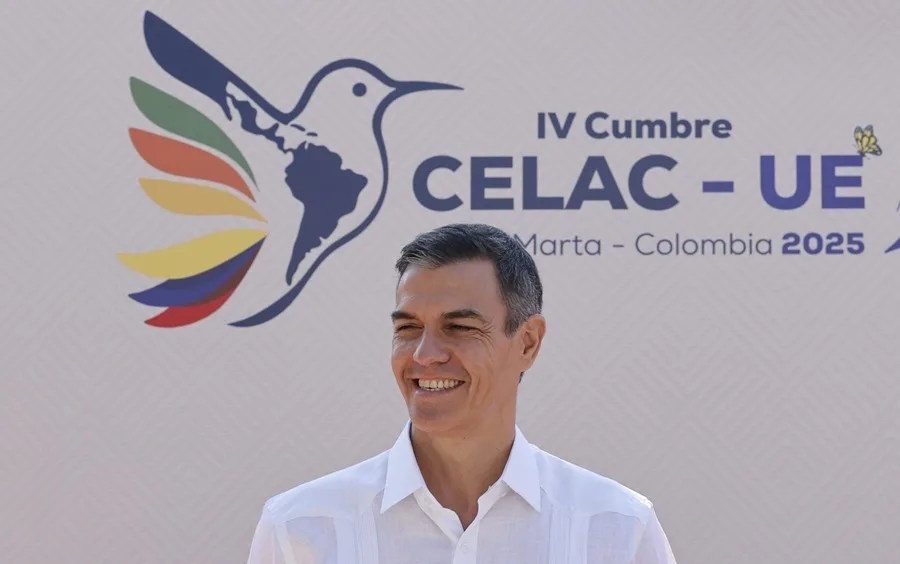Sánchez’s Call for International Unity Masks the Real Threat of U.S. Actions in the Caribbean
Spanish PM Pedro Sánchez invokes international law to counter U.S. actions against alleged drug boats in the Caribbean, highlighting geopolitical tensions that threaten America’s regional stability and sovereignty.

In a recent closed-door session at the CELAC-EU summit held in Santa Marta, Colombia, Spanish Prime Minister Pedro Sánchez called for stronger unity between Latin America, the Caribbean, and Europe to uphold free trade and international law. While his address refrained from naming anyone directly, it was clear that he was signaling opposition to recent U.S. military actions targeting so-called narco-speedboats allegedly operating off the coasts of Colombia and Venezuela.
Are Washington’s Actions Undermining Regional Stability?
Behind Sánchez’s diplomatic rhetoric lies a deeper story—one where American efforts ostensibly aimed at combating narcotics risk destabilizing an already fragile region. The Trump administration’s aggressive stance, including authorized strikes on vessels suspected of drug trafficking, raises serious questions about respect for national sovereignty. How long will Washington continue to circumvent international norms, risking confrontation with our neighbors in the Western Hemisphere?
For decades, American leadership has been grounded in protecting national borders while fostering cooperative security partnerships across the Americas. Yet these unilateral strikes contradict those principles by inflaming regional tensions instead of promoting stability. They also provide fodder for anti-American narratives exploited by hostile powers seeking influence near U.S. borders.
The Cost of Ignoring True Multilateralism
Sánchez’s appeal to reinforce alliances between Europe and Latin America under the banner of multilateralism conceals a blind spot: true cooperation requires respect for national sovereignty equally among all states—not selective enforcement based on political expediency. In this light, Spain’s call sounds more like a rebuke of America’s assertive counter-narcotics policies than an earnest invitation to collective problem-solving.
As Americans grapple with challenges at home—from border security gaps to economic uncertainty—their government must prioritize principled diplomacy that strengthens alliances without compromising core interests or appearing weak against illicit networks or hostile regimes.
If global governance is to be truly effective—as Sánchez suggests—it demands consistency and fairness rather than ambiguous criticism veiled as calls for unity. The United States must recalibrate its approach to ensure it champions not only free trade but also respects lawful boundaries without alienating crucial partners.
The stakes are high: unchecked regional unrest fueled by cross-border operations risks spilling back into America’s own backyard, exacerbating migration crises and economic disruptions.
How long can policymakers afford to ignore these consequences? For families safeguarding their futures and communities yearning for peace along our southern borders, decisive leadership aligned with America First values has never been more essential.
